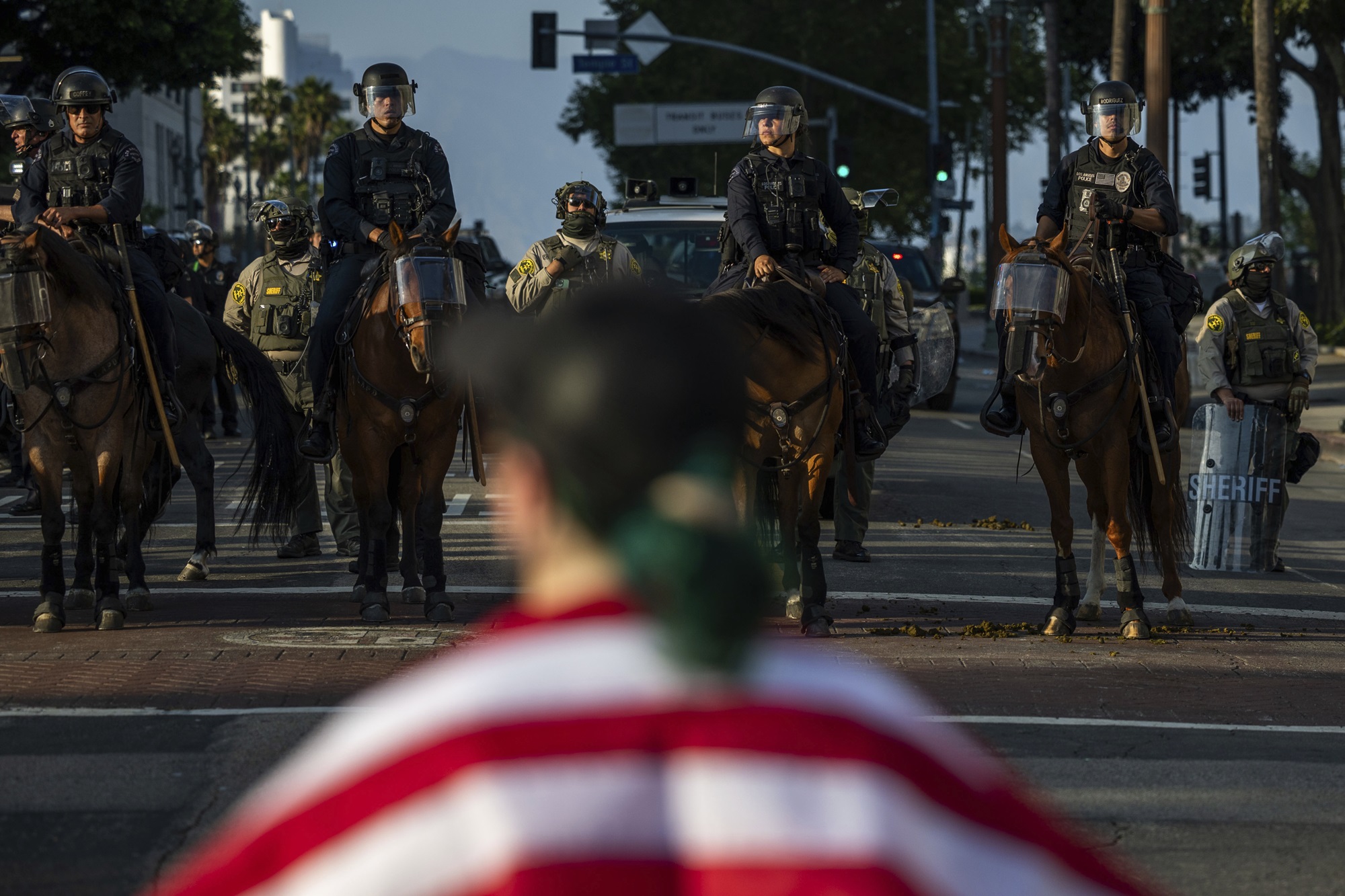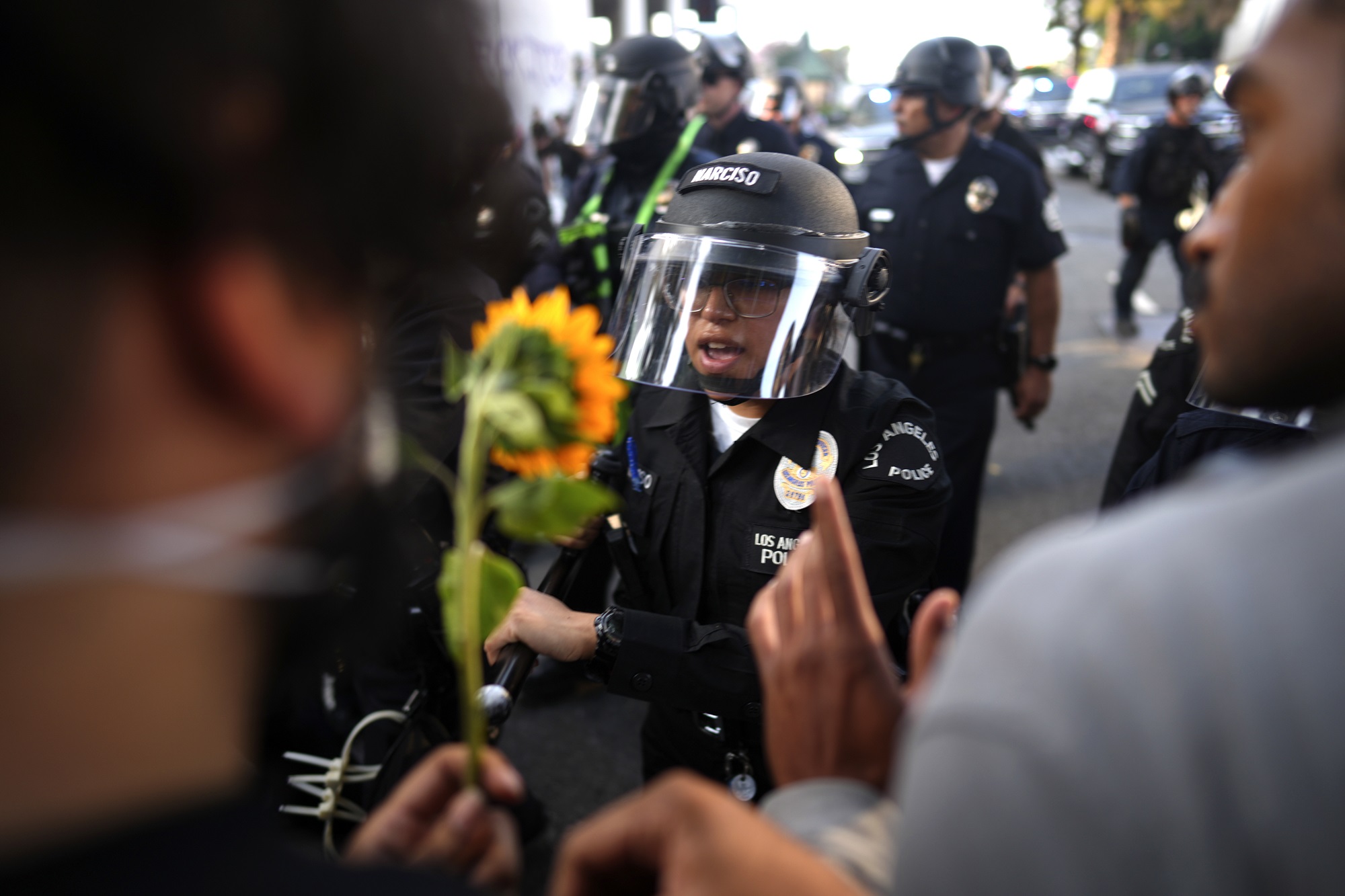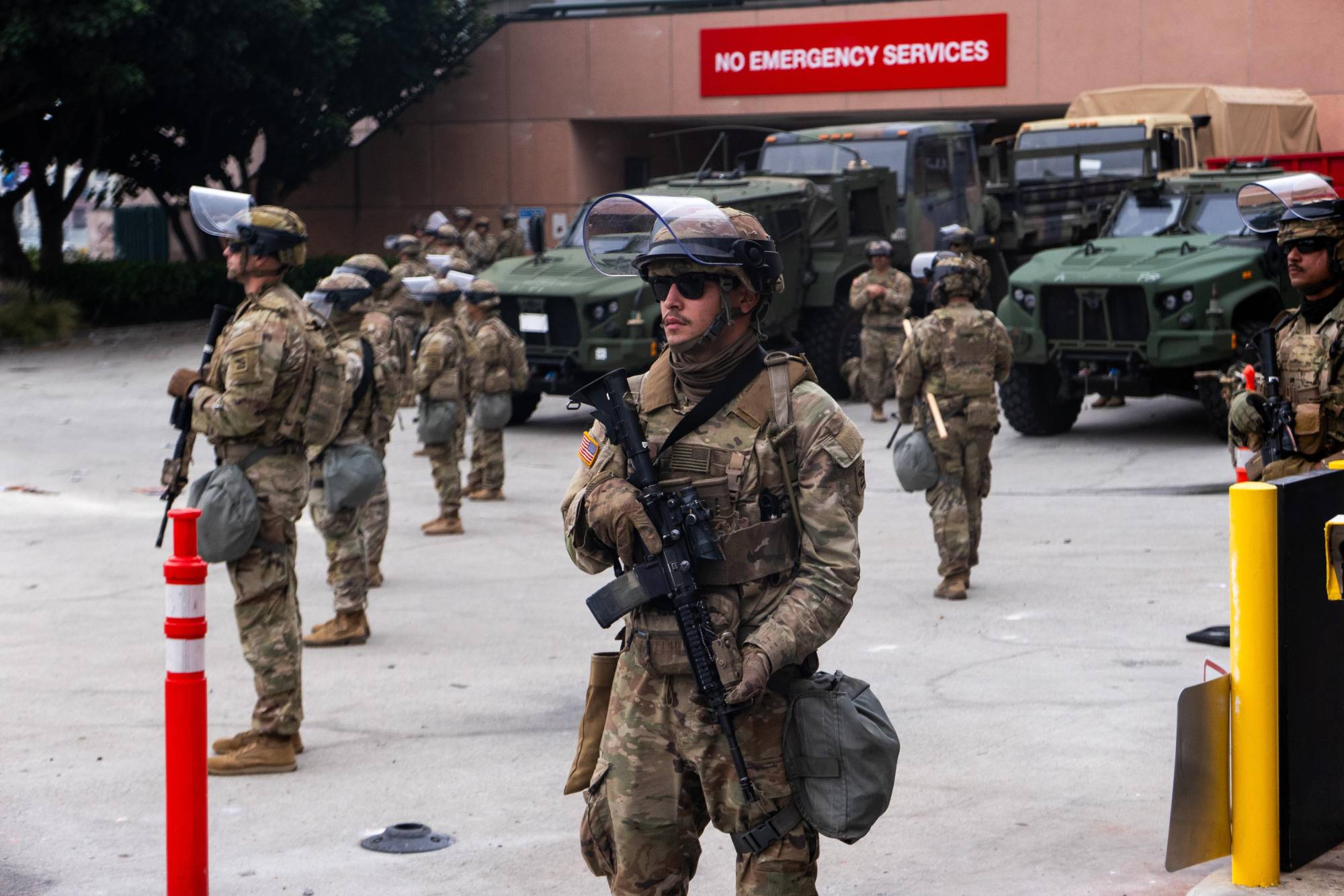The state of California will be allowed to depose key Trump administration officials and seek more details about how thousands of armed troops have been used since their deployment earlier this month to Los Angeles amidst immigration raids and resulting protests.
The decision by U.S. District Judge Charles Breyer is the latest legal development in a case brought by California Gov. Gavin Newsom over President Donald Trump’s decision to call up 4,000 National Guard troops and 700 U.S. Marines in early June. The president argues that the troops are needed to quell protests and ensure that federal immigration laws can be enforced, while the state maintains that their presence is illegal, unnecessary and likely to provoke more violence.
In his ruling late Wednesday, Breyer denied the Trump administration’s request to transfer the case to a different federal court and found that an earlier appeals court ruling siding with the administration over the president’s authority to call up the troops does not preclude him from considering how they can be used.



